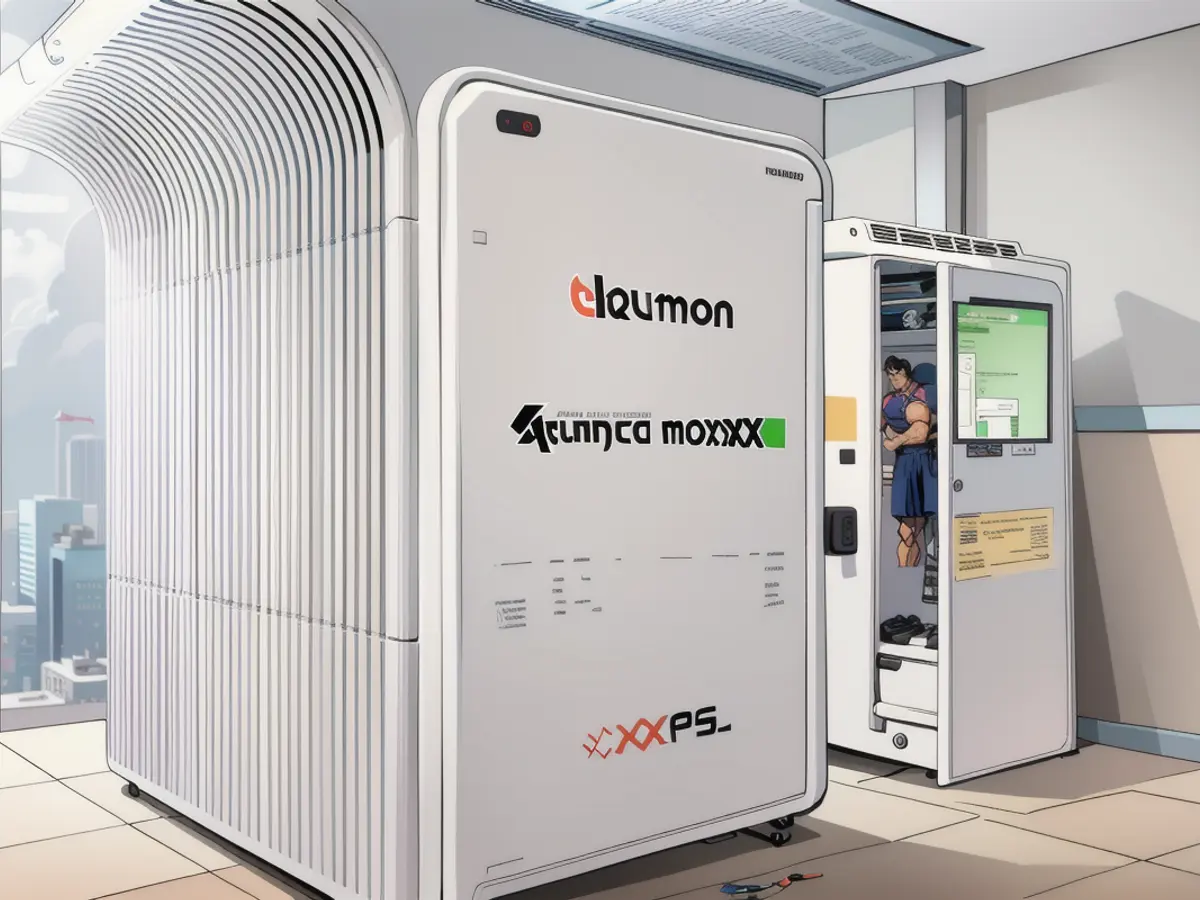Scientific Advances [Editor's Note] - A new quantum computer commences operation.
The brand new quantum computer at NXP in Hamburg is as big as two washing machines. Its operation through ion traps is intricate - NXP's technical director, Lars Reger, simplifies it this way: Ions, or electrically charged atoms, are held stationary with laser beams. From there, they can be made to interact, allowing for more than just the binary states zero and one like in digital electronics. Computations once requiring millions of years for conventional computer systems can now be achieved. The units of information in quantum technology are not referred to as bits, but qubits. On Thursday, the fully developed prototype of an ion trap quantum computer in Germany was ceremonially turned on in the presence of Chancellor Olaf Scholz (SPD).
A global push for quantum computing research is underway. Complex calculations necessary for tasks such as climate models and shipping/port logistics will be optimized with these powerful computers. Quantum computers are a high-end optimization machine, says Reger. In 2021, the German government launched an initiative to make Germany a front-runner in the field of microelectronics. The quantum computing initiative of the German Aerospace Center is being financed with over 500 million euros, of which over 200 million euros is being funneled into the Hamburg project, stated initiative head Robert Axmann.
Scholz: Germany Needs to Lead in Future Technologies Globally
Among NXP, Bosch, Infineon, and other companies, Germany will become the heart of Europe's semiconductor industry, said Scholz. The promotion of microelectronics is a strategic shift. "Since semiconductors are the raw material of the 21st century," said the Chancellor. Germany and Europe must be at the forefront of all future technologies on a global scale. In addition to quantum technology, this includes AI, biotechnology, and nuclear fusion. "Only if we stay one step ahead everywhere can we influence where the journey is headed," said Scholz. In terms of engaging private and institutional investors, Europe needs to play catch-up with the US. Therefore, Scholz and French President Emmanuel Macron are keen on advancing the Capital Market Union.
Climate Models, Logistics, and Credit Cards
Following the symbolical turning on of the new computer in Hamburg, more partners are expected to join who wish to carry out complex calculations, especially in the area of climate modeling, logistics, or material science. Eon, an energy supplier, is already a partner focused on the charging infrastructure involving electric cars, said Felix Knoke, spokesperson for the quantum computing initiative.
The collaborating partners, including software providers like ParityQC and the hardware startup Eleqtron, were frequently mentioned as an "ecosystem" during the inauguration of the new computer. Yet, it's not only about environmental matters. NXP is heavily involved in credit cards, said Reger. Researchers at the company developed post-quantum crypto chips that are highly secure against hacker attacks.
Scholz was shown an electric car by NXP that is largely controlled by cameras and sensors. The company also showcased a water rescue drone. It can detect missing people in the water. The €45,000 drone has already been tested at the Hamburg Port. NXP is marking its 100-year anniversary in Hamburg this year. Mayor Peter Tschentscher (SPD) recalled the predecessor company, which started producing radio tubes in 1924. The demand for radio tubes was high back then, Tschentscher noted. In 1927, the Hamburg manufacturer merged with the Dutch company Philips.
Read also:
- The German government, recognizing the potential of quantum computing, launched an initiative in 2021 to make Germany a leader in microelectronics.
- NXP, with its operations in Hamburg, is one of the companies at the forefront of Germany's semiconductor industry, aimed at becoming the heart of Europe's electronics sector.
- Complex climate models and logistics tasks will benefit from the power of quantum computers, as demonstrated by the partnership between NXP and energy supplier Eon.
- Ongoing research at NXP has led to the development of post-quantum crypto chips, providing advanced security against hacker attacks for credit cards.
- In addition to quantum technology, Germany and Europe aim to lead globally in other future technologies such as AI, biotechnology, and nuclear fusion.
- The full operation of the new quantum computer by NXP in Hamburg was attended by Chancellor Olaf Scholz, emphasizing the German government's support for such advancements.
- The German Aerospace Center is investing over 500 million euros in quantum computing research, with a significant portion allocated to the Hamburg project, led by initiative head Robert Axmann.
- Partnering with software providers like ParityQC and hardware startup Eleqtron, NXP is fostering an "ecosystem" for collaborative quantum computing projects, advancing the field beyond environmental applications.
- Celebrating its centennial in Hamburg this year, NXP showcases its role in modern technologies, from electric car control systems to water rescue drones like the €45,000 drone used for searching missing people in waters.








